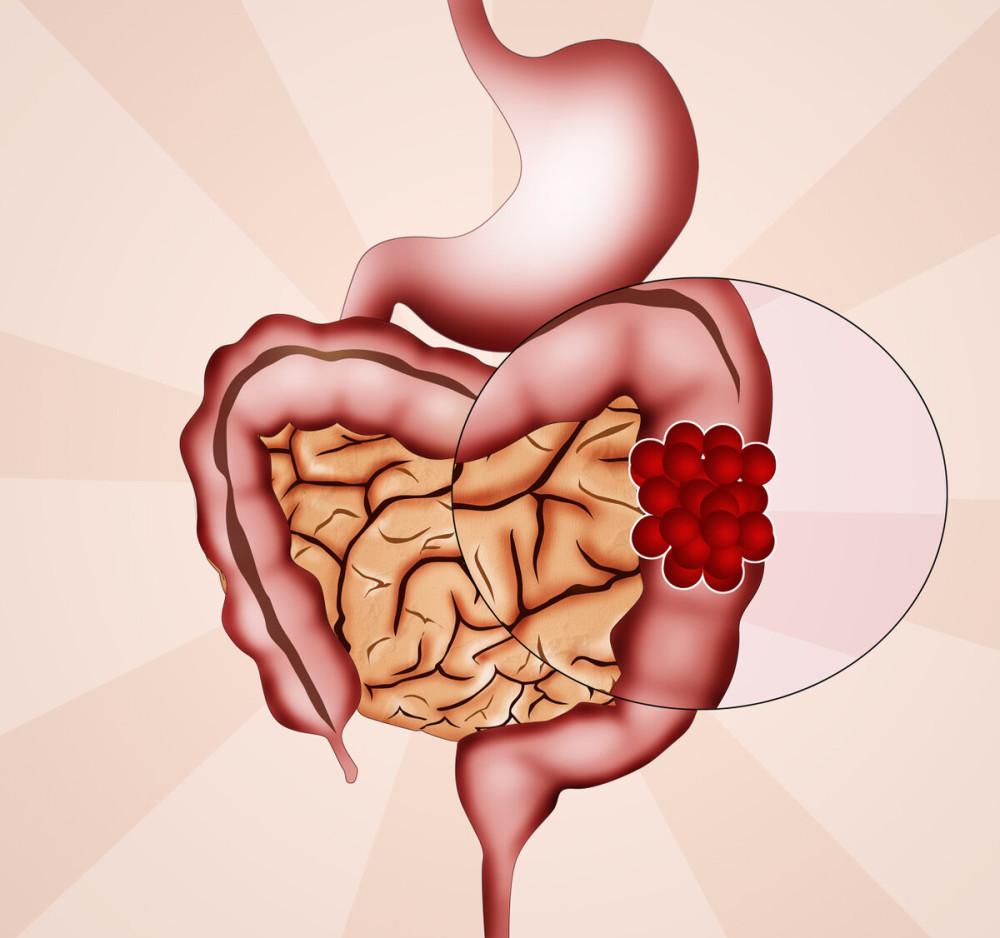Rectal cancer is not uncommon in ordinary days, and is a common malignant tumor of the digestive tract, with high incidence and great harm.
Rectal cancer is prone to diarrhea symptoms, which increases the pain of patients and is not conducive to disease treatment. A large number of data show that the incidence of rectal cancer is increasing year by year, which has different degrees of impact on people's physical and mental health, greatly reducing the quality of life and even endangering life. Therefore, once the clinical diagnosis of rectal cancer is confirmed, it should be treated symptomatically as soon as possible to avoid serious consequences. So, what should we do in the face of rectal cancer diarrhea?

First, the clinical manifestations of rectal cancer, how much do you know?
At present, the cause of rectal cancer is not clear, and some scholars believe that its occurrence may be related to the social environment, eating habits and genetic factors. Among them, rectal polyps are a high risk factor for rectal cancer. At present, the academic community recognizes that the intake of animal fat and protein is too high, and the intake of food fiber is insufficient, which is easy to cause rectal cancer.
Rectal cancer, there are no obvious symptoms in the early stage, with the development of the disease, rectal cancer grows to a certain extent, there may be a series of symptoms, such as changes in bowel habits, constipation, diarrhea, tenesmus, pus and bloody stools, bloody stools, etc., the stool gradually thins, late stage may appear defecation obstruction, emaciation and other symptoms, and even cachexia. If the tumor invades peripheral organs such as the bladder, urethra, and vagina, it may show signs of urinary tract irritation, vaginal outflow of fecal fluid, pain in the sacrum and perineum, and often symptoms such as lower extremity edema.
Second, I have rectal cancer, how to treat it?
(1) Surgical treatment
Surgical treatment of rectal cancer is generally divided into two types, namely radical surgery and palliative surgery.
(2) Radiation therapy
In the treatment of rectal cancer, radiation therapy is of great significance. At present, the survival period of the late middle and low rectal cancer in the local stage is longer than that of surgery and then radiation therapy after preoperative simultaneous radiotherapy and chemotherapy.
(3) Chemotherapy
Postoperative pathological stages of rectal cancer are stage II and stage III, and postoperative chemotherapy is recommended, and continuous chemotherapy is generally 6 months.
3. What are the causes of diarrhea for rectal cancer?
1, surgical factors.
2, chemoradiotherapy factors.
3, intestinal environmental factors.
4, other factors, such as eating habits, etc.
4. How to deal with rectal cancer and diarrhea?
1, inhibit intestinal peristalsis and secretion, administer loperamide (prolong the residence time of intestinal contents), 2 mg per tablet, 2 tablets per day, and then, according to the improvement of diarrhea, adjust the dosage, maintain stool 1-2 times a day, the maximum dose should not exceed 8 tablets / day.
2, to promote water absorption, give tannic acid protein tablets, 0.3 grams per tablet, 3-6 tablets each time, 3 times a day, taken on an empty stomach, if you can grind the tablets into powder to take, the effect is better. Nifedipine extended-release tablets, 10 mg once daily, have the effect of inhibiting intestinal motility.
3, to restore the dysregulated flora, select Lichen Bacillus (whole intestine), 0.25 g per tablet, 2 tablets each time, 3 times a day. Or add a compound such as Bifidobacterium bifidobacterium to 2 capsules. Take with lukewarm water alone in the morning and evening on an empty stomach, avoiding use with tannic acid protein.
4, unless the stool test shows a serious infection, the appearance of a large number of pus cells and red blood cells, giving antibiotics is harmful and unhelpful.
5, maintain water-electrolyte balance, long-term diarrhea, may lead to low blood potassium, if the symptoms occur, should be supplemented in time, eat more low-fat, low-fiber, high-protein foods.
6, it is recommended to do more stool routine and pathogenic bacteria culture examination several times, colonoscopic review is also very necessary. Full gastrointestinal barium meal perspective, to help understand the intestinal peristalsis and operation, high reference value.
7, closely observe the adverse reactions in the process of medication, especially the other extreme, that is, diarrhea, to avoid intestinal obstruction.
5. Case study
Liu Moumou, 47 years old, diagnosed with rectal cancer, undergoing radical resection of rectal cancer Dixon, diarrhea symptoms appeared on the 8th day after surgery, ranging from 3-10 times a day, sparse stool, not much, no abdominal pain, fever symptoms, examination of the abdomen, no tenderness and rebound pain, normal blood picture.
Analysis of the causes of diarrhea: After the rectal cancer surgery, diarrhea is prone to occur, because the rectum occupies an important position in water absorption, and rectal cancer patients are prone to diarrhea due to the removal of part of the rectum (the total length of the rectum is 15cm). According to the above cases, although the blood picture is normal, it is still necessary to check the stool routine to rule out intestinal infection. If there is no infection, consider the above causes.
Treatment: (1) Limit diet, eat liquid food, help the intestine rest, drink mild drinks, if the juice, with the symptoms of diarrhea lessens, you can eat some low-residue foods, a small number of meals, reduce the burden on the gastrointestinal tract, avoid eating high-fat, greasy and spicy foods, and do not drink coffee, tea and caffeine-containing, carbonated drinks, do not eat oranges, grapes, high-fiber and rough foods (such as whole wheat bread, corn flowers, pine cones) and too cold and hot drinks and foods.
(2) Diarrhea may cause dehydration, and more water should be drunk.
(3) If necessary, drug therapy can be given, such as smecta 3 grams, berberine 0.2 grams, vitamin B210mg and so on.